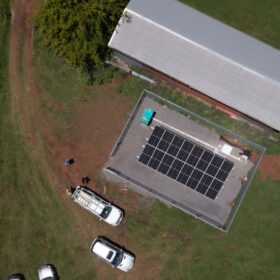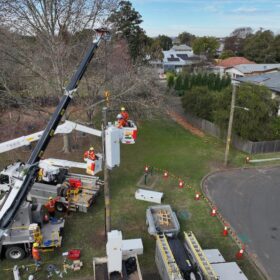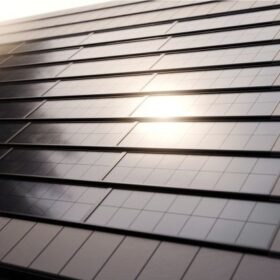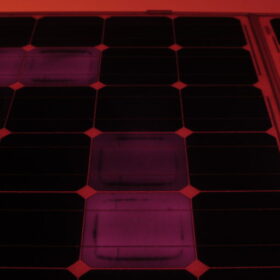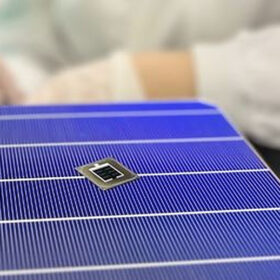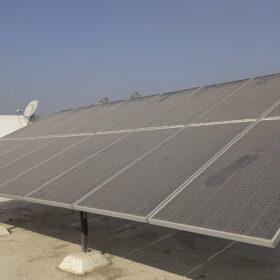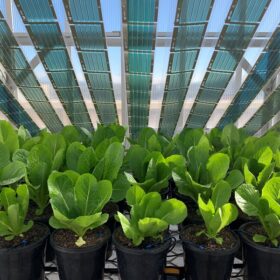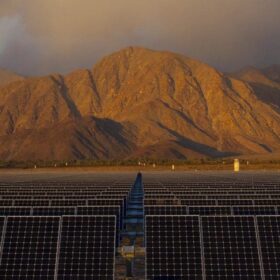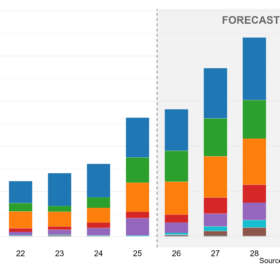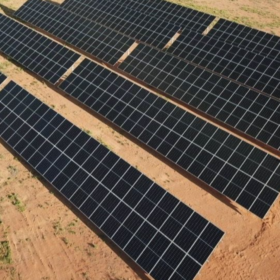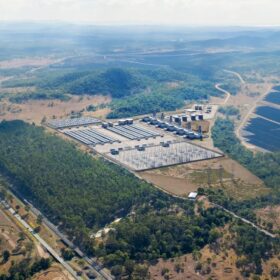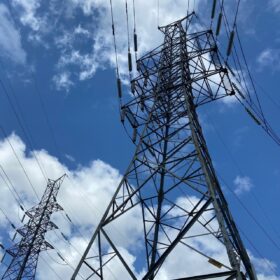Solar-backed stand-alone power systems put to test in Victoria
Victorian network operator AusNet Services’ independent subsidiary Mondo Power has completed the installation and commissioning of 17 stand-alone power systems featuring PV and battery energy storage as part of its inaugural trial of the off-grid technology.
Ausgrid adopts pole-mounted technology for community battery trial
New South Wales network operator Ausgrid has installed its first pole-mounted battery energy storage system as part of a trial which will examine the viability of the technology to better manage the increasing penetration of rooftop solar and periods of peak demand on the network.
Roof-integrated solar takes 44% less time to install on new construction
A time-motion study by United States Department of Energy’s National Renewable Energy Laboratory shows that retrofitting installations of roof-integrated PV takes 7% less labour time than standard solar installations. For new construction, the installation time drops by 44%.
Impact of solar module soiling on grid-forming inverters
New research from Serbia claims air-polluted urban climatic conditions may not only induce maximum power point (MPP) tracking problems in PV systems but also reduce power yield by up to 30%. The scientists also said that soiling may significantly affect the functionality of single-stage inverters operating in grid-forming mode.
Thirty years of photovoltaic module degradation
Scientists in Europe have put together a comprehensive guide to PV module degradation, examining literature and case studies on the topic as far back as the 1990s. Their paper details the primary stress factors faced by modules in the field, the most common modes of degradation and failure, and provides clear definitions relevant to reliability, quality and testing standards. Among their key findings is that a full understanding of how combinations of different stresses over varying timeframes is still missing from methods to estimate and improve system reliability.
All solar cell efficiencies at a glance – Martin Green team update
The research group led by Professor Martin Green has published Version 62 of the solar cell efficiency tables. There are 21 new results reported in the new version, a record number for the Tables.
Global benchmark for solar irradiance data released by IEA-PVPS
The International Energy Agency’s Photovoltaic Power Systems Programme (IEA-PVPS) has published a report to help the solar industry to choose appropriate surface radiation models and data providers based on location and application requirements.
Inside the impacts of soiling
Scientists in India carried out a comprehensive study into the impacts of soiling on PV modules – measuring the amount of performance loss caused by different types of dust and bird droppings, and for modules installed at various tilt angles, in the hot-dry climate of Vellore in southern India. Their findings could allow developers to better take into account and mitigate the effects of soiling during site selection and system design.
CSIRO tests semi-transparent solar film at greenhouses to enhance growth conditions
The CSIRO has run an internal ‘Shark Tank’-style competition which will see it test semi-transparent, printed solar films at its greenhouses to assess whether the technology can be used to enhance crops’ growth and cut emissions.
Solar-plus-storage microgrids minimise power shutoffs during wildfires
Lawrence Berkeley National Laboratory researchers have shown that microgrids equipped with solar-plus-storage systems can maintain an average levelised cost of energy (LCOE) below USD 0.30/kWh and limit annual public safety power shutoffs to 2% to 3% of annual energy demand.
